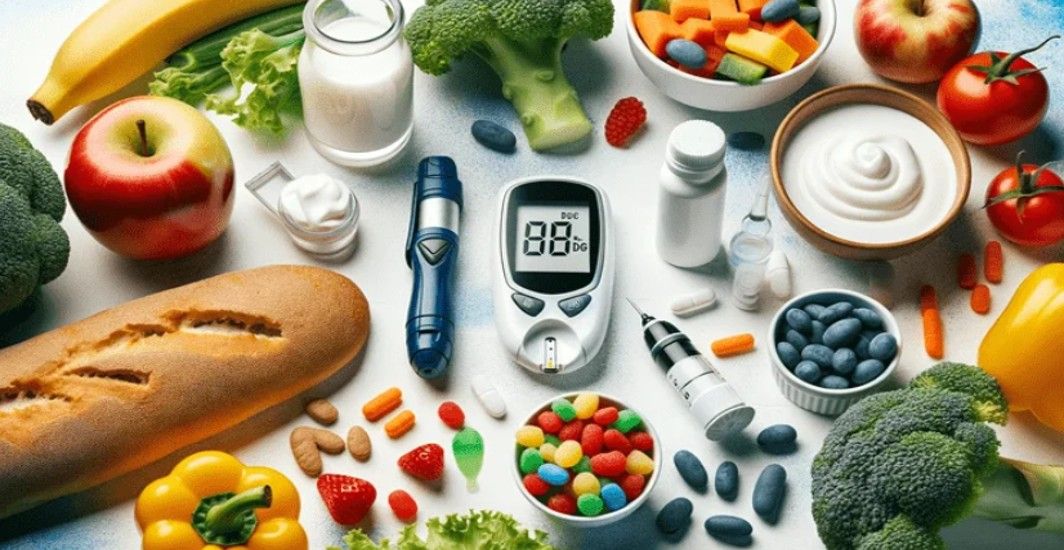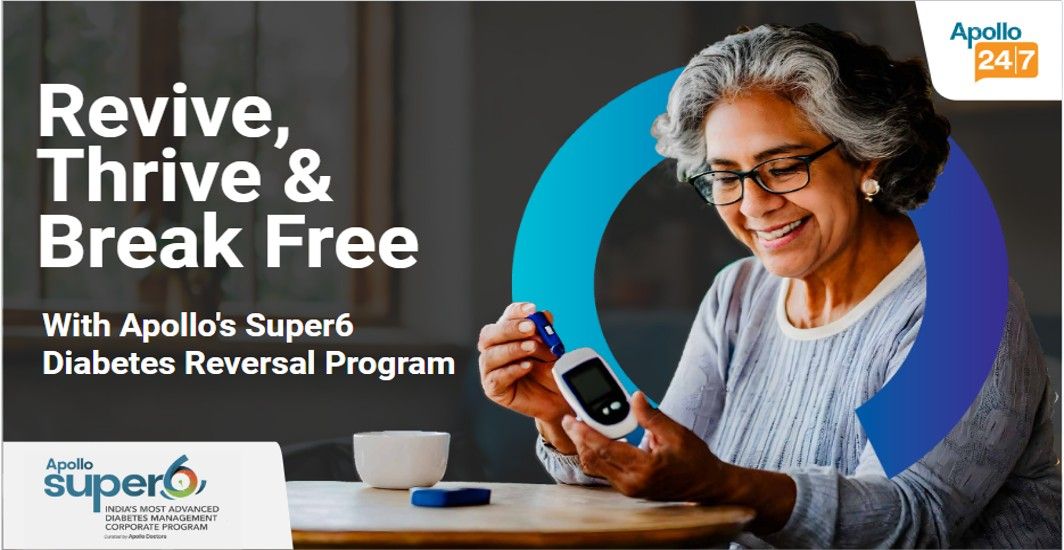Diabetes Management
Can Eating Seafood Cause Diabetes?
1 min read
By Apollo 24|7, Published on - 05 July 2024
Share this article
0
0 like

You may have heard whispers suggesting that seafood could spike your blood sugar levels and potentially trigger diabetes. But, does eating seafood cause diabetes? Is it the fish on your plate or the method of its preparation that we should be concerned about? Let's unravel this mystery and confidently navigate through our seafood choices.
Seafood: Friend or Foe?
In its purest form, seafood is not a direct cause of diabetes. The way it is prepared, however, makes all the difference. For instance, seafood dishes that are fried, breaded, or high in fat like fried fish or shrimp can result in excessive calorie and fat intake. Regular consumption could potentially contribute to weight gain and increase your risk of developing type 2 diabetes.
Overconsumption of shellfish like shrimp, prawns, crab, and oysters, especially when prepared with added fats, sugars, or sauces may elevate cholesterol and blood sugar levels. Research suggests that a higher intake of shellfish (one or more portions per week) was associated with a 36% increased risk of developing type 2 diabetes.
The Power of Omega-3
In contrast to the potential risks discussed above, certain types of fish may help reduce the risk of type 2 diabetes. Fatty fish like salmon, mackerel, and sardines are high in beneficial omega-3 fatty acids which can improve insulin sensitivity and reduce inflammation.
Balance is Key
While seafood itself does not directly cause diabetes, the way it's prepared can impact your diabetes risk. Balancing your seafood consumption by opting for healthier cooking methods and limiting fried or high-fat seafood dishes is a sensible approach to managing diabetes risk.
Remember, managing diabetes effectively requires taking charge; it might seem challenging at first but not impossible. The Apollo Super 6 program provides personalized support and resources necessary for managing diabetes, including diet, physical activity, and other lifestyle modifications.
Diabetes Management
Consult Top Diabetologists
View AllLeave Comment
Recommended for you

Diabetes Management
Managing Type 2 Diabetes: Why Treatment Matters
Untreated type 2 diabetes can lead to serious health complications, including heart disease, kidney failure, vision loss, infections and cognitive changes. It's crucial to diagnose and manage this condition properly through lifestyle changes and medication as needed and recommended by your doctor.

Diabetes Management
Conquering Diabetes: The Promise of Reversal with Apollo Super 6
Unlock a life free from diabetes worries with Apollo Super 6, Diabetes Reversal Program. Apollo 24/7’s mission is to empower you with the right tools for effective diabetes management techniques, including personalized diet and activity plans, dedicated coaches, and 24/7 support. Enjoy guaranteed HbA1c reduction, weight control, better metabolic health, and reduced medicine dependency. Get your free expert consultation and learn how this transformative care helps you. Try our starter track for just ₹2999 for three months. Join and reclaim your health! Contact: super6@apollo247.org | +917569034758.
.jpg?tr=q-80)
Diabetes Management
The Benefits of Paneer for Diabetes Management
Paneer is often a dietary staple in Indian households. But is it good for those managing diabetes? Yes, if consumed judiciously. High in protein and low in carbohydrates, paneer is a worthy addition to a diabetic diet when taken in moderation. However, dietary choices are just one aspect of managing diabetes. Comprehensive programmes like Apollo Super 6 offer holistic guidance to tackle this condition effectively.
Subscribe
Sign up for our free Health Library Daily Newsletter
Get doctor-approved health tips, news, and more.
Visual Stories

8 Fruits That are Incredibly Healthy for Diabetes
Tap to continue exploring
Recommended for you

Diabetes Management
Managing Type 2 Diabetes: Why Treatment Matters
Untreated type 2 diabetes can lead to serious health complications, including heart disease, kidney failure, vision loss, infections and cognitive changes. It's crucial to diagnose and manage this condition properly through lifestyle changes and medication as needed and recommended by your doctor.

Diabetes Management
Conquering Diabetes: The Promise of Reversal with Apollo Super 6
Unlock a life free from diabetes worries with Apollo Super 6, Diabetes Reversal Program. Apollo 24/7’s mission is to empower you with the right tools for effective diabetes management techniques, including personalized diet and activity plans, dedicated coaches, and 24/7 support. Enjoy guaranteed HbA1c reduction, weight control, better metabolic health, and reduced medicine dependency. Get your free expert consultation and learn how this transformative care helps you. Try our starter track for just ₹2999 for three months. Join and reclaim your health! Contact: super6@apollo247.org | +917569034758.
.jpg?tr=q-80)
Diabetes Management
The Benefits of Paneer for Diabetes Management
Paneer is often a dietary staple in Indian households. But is it good for those managing diabetes? Yes, if consumed judiciously. High in protein and low in carbohydrates, paneer is a worthy addition to a diabetic diet when taken in moderation. However, dietary choices are just one aspect of managing diabetes. Comprehensive programmes like Apollo Super 6 offer holistic guidance to tackle this condition effectively.


